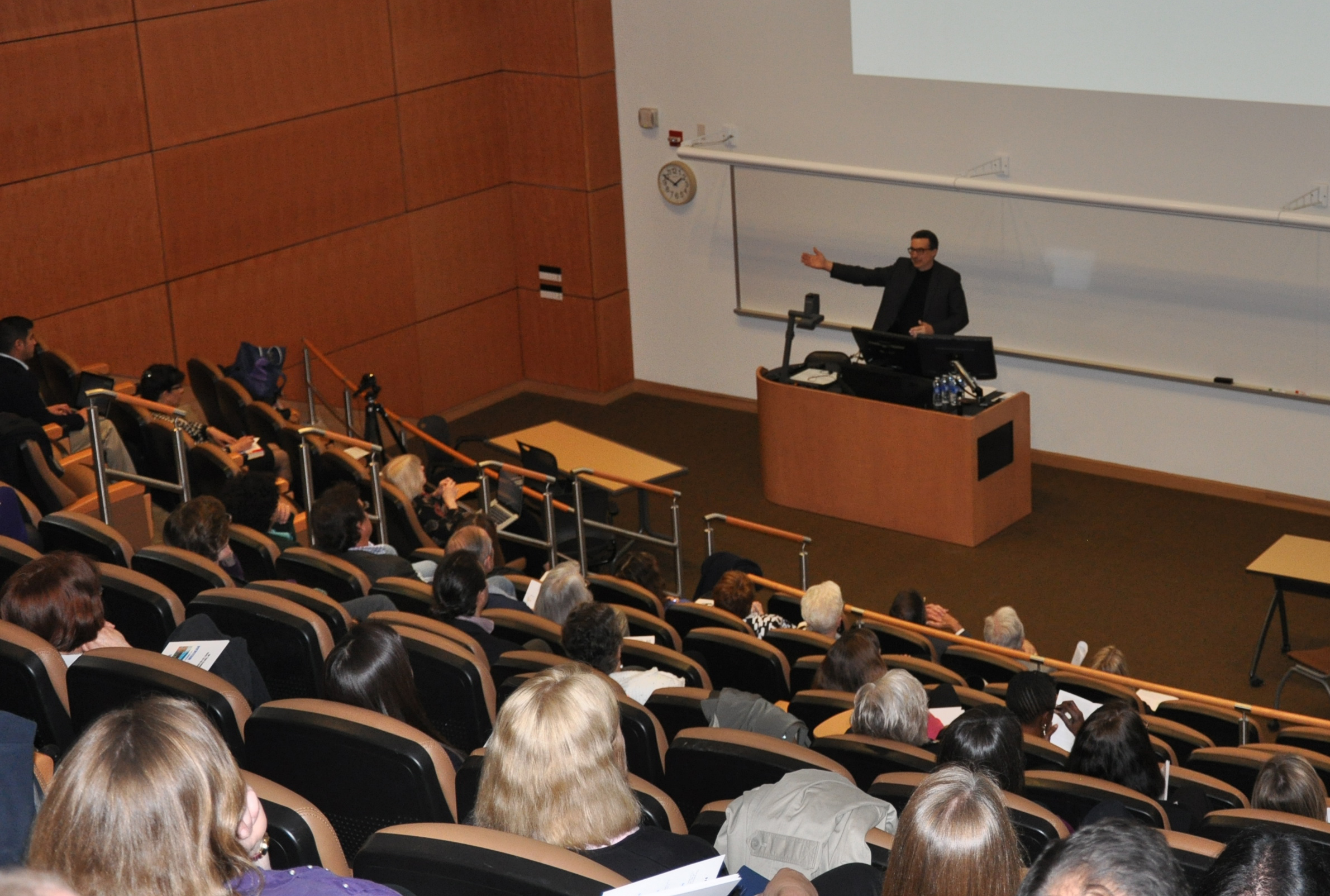A symposium co-sponsored by the UNC Lineberger Comprehensive Cancer Center brought leading breast cancer researchers together Friday to share findings about the genetic and environmental factors driving disparities in the disease’s incidence and mortality.

The event was held to highlight major findings of the Carolina Breast Cancer Study, a population-based study that first launched at UNC-Chapel in 1993. A driving motivation for the study has been to better understand why African-American women disproportionately die from the disease.
The study is now in its third phase, with UNC-Chapel Hill researchers gathering data on 3,000 women from 44 counties in North Carolina.
“The first and continuing question from this study is: Why there is a disparity in breast cancer incidence and mortality between African Americans and whites?” said Andy Olshan, PhD, the study’s principal investigator, who spoke on the Carolina Breast Cancer Study’s history. Olshan is a professor and chair of the Department of Epidemiology at the UNC Gillings School of Global Public Health and associate director of population sciences at the UNC Lineberger Comprehensive Cancer Center.
Olshan said the study has helped identify factors that play into the disparity including cancer genomics and issues with access to care and screening.
“We still have questions of why African Americans have a poorer survival,” he said.
Friday’s symposium was held in honor of Robert Millikan, DVM, MPH, PhD, a UNC Lineberger member and professor of cancer epidemiology at the UNC Gillings School of Global Public Health. Millikan, who led the breast cancer study starting in 1999, died in 2012.
“Bob everyday woke up and tried to figure out how to make life better for women with breast cancer,” H. Shelton Earp III, MD, director of UNC Cancer Care, said of Millikan. “His passion was in breast cancer and particularly minority disparities.”
It was Millikan who first saw the potential for the integration of genomic breast cancer subtype research and population studies to answer important questions about disparities, said Charles M. Perou, PhD, a UNC Lineberger member and UNC School of Medicine professor of genetics and pathology.
Perou spoke on past and new findings from the Carolina Breast Cancer Study, including from a major 2006 analysis that showed a particularly aggressive type of breast cancer known as the basal-like subtype was more prevalent in younger, premenopausal African-American women. The findings by Perou and colleagues were published in the Journal of the American Medical Association.
“African-Americans and young women are getting more of an aggressive type of breast cancer and less of a better outcome type,” Perou said.
Perou said Millikan saw the potential for the intersection of those research areas early on.
“I met Bob during my first interview here,” he said. “Even at that time, he saw the link between that there was going to be something between this genomic stuff we were doing, which was very new at the time, and these population-based studies.”
Melissa Troester, PhD, an associate professor of epidemiology at the UNC Gillings School of Global Public Health and co-director of the UNC Lineberger Cancer Epidemiology Program, spoke about exciting areas of ongoing breast cancer research at UNC-Chapel Hill. Troester said Perou’s earlier work is being expanded to study new technology to identify patients’ genomic cancer profiles as part of the third phase of the Carolina Breast Cancer Study.
Troester also described work to better predict breast cancer recurrence by studying the microenvironment surrounding tumors.
“There are some strong microenvironment issues that influence progression,” she said.
In addition to researchers from UNC-Chapel Hill, the symposium also included presenters from other institutions.
Mary-Claire King, a professor of genome sciences and medicine at the University of Washington School of Medicine, advocated for routine sequencing for women starting at age 30 to determine if they have BRCA1 or BRCA2 gene mutations. Women with those mutations are at higher risk for breast cancer.
While King said the U.S. Preventive Services Task Force recommends mutation screening for women with a family history of the disease, she gave evidence for the value of screening more broadly based on the findings of a study published last year in the journal Proceedings of the National Academy of Sciences.
“I think we are now at the time…when sequencing of BRCA1 and BRCA2 can be done and it costs vastly less, and that women have a right to this information,” King said.
The symposium was sponsored by the UNC Gillings School of Public Health Department of Epidemiology, supporters of the Robert Millikan Tribute Fund and UNC Lineberger. It was followed by events held throughout the weekend held to honor Millikan, including the premiere of the “Millikan Symphony” written by Ann Millikan in honor of her brother.
